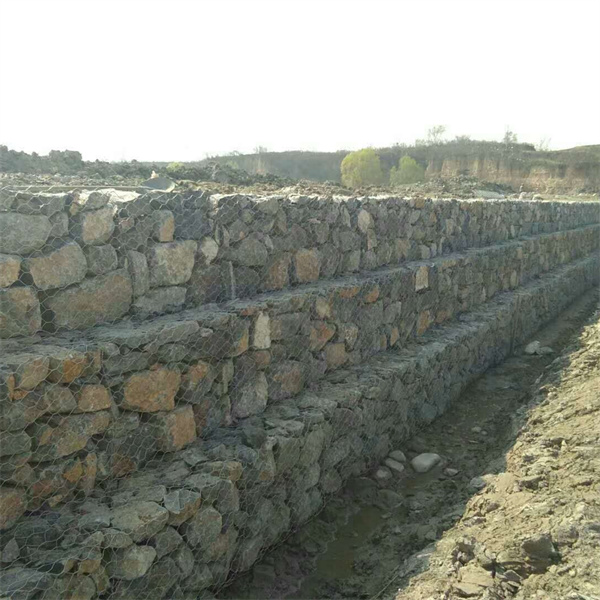Dec . 22, 2024 22:38 Back to list
Finding Quality Suppliers for Gabion Landscaping Solutions and Designs
Exploring Gabion Landscaping and Its Suppliers
Gabion landscaping is rapidly becoming a preferred choice for many homeowners and landscape architects due to its versatility, durability, and eco-friendliness. Gabions, which are wire mesh cages filled with materials like stones, rocks, or even recycled concrete, present a unique solution for various landscaping needs. This article delves into the world of gabion landscaping, the benefits it offers, and insights on sourcing gabion materials through reliable suppliers.
What Are Gabions?
Gabions originated in military fortifications, where they were used to create barriers. In modern landscaping, they are used to construct retaining walls, decorative features, and erosion control structures. The flexibility of gabion structures allows them to adapt to different environments and aesthetic preferences, making them suitable for urban parks, residential gardens, and rural properties alike.
Benefits of Gabion Landscaping
1. Aesthetic Appeal Gabions can be filled with stones of varying colors, sizes, and textures, allowing for creativity in design. They can serve as beautiful focal points in gardens, walkways, or outdoor seating areas, blending seamlessly with natural surroundings.
2. Environmental Sustainability Gabions can be filled with natural materials sourced locally, reducing transport emissions. Additionally, using recycled stones or concrete helps diminish landfill waste, promoting a more sustainable landscaping option.
3. Erosion Control One of the primary uses of gabions is in managing soil erosion. They act as stabilizing structures, preventing soil mass from sliding away during heavy rains or floods. Their porous design allows for water drainage, minimizing hydrostatic pressure on retaining walls.
4. Durability Gabions made of galvanized steel wire or plastic-coated wire resist rust and wear, ensuring they last for many years with minimal maintenance. They can withstand harsh weather conditions, making them highly functional.
5. Cost-Effectiveness Compared to traditional materials, gabions can be a cost-effective solution. They often require less foundational work and can be installed with relative ease, saving both time and labor costs.
gabion landscaping suppliers

Sourcing Gabion Landscaping Materials
Finding the right supplier for gabions is crucial to ensure you receive quality materials that meet your landscaping needs. Here are some key considerations when looking for gabion suppliers
1. Quality of Materials Ensure that suppliers offer high-quality gabions made from durable materials. Look for products that are galvanized or coated to prevent rust and degradation.
2. Variety of Options A reputable supplier should have a wide range of gabion options, including different sizes, mesh sizes, and filling materials. This variety allows landscapers to tailor their choices to specific project requirements.
3. Experience and Expertise Choose suppliers with a solid reputation and experience in the landscaping industry. Established suppliers often have a wealth of knowledge regarding product applications and can provide valuable advice.
4. Sustainability Practices Look for suppliers who prioritize sustainability in their operations. Whether it’s through sustainable sourcing of materials or environmentally friendly practices, supporting such businesses aligns with the green ethos of gabion landscaping.
5. Customer Service and Support Excellent customer service is vital, especially for large projects. Suppliers should be accessible for queries, provide assistance during the selection process, and offer support after the sale.
Conclusion
Gabion landscaping offers a functional, aesthetic, and environmentally friendly solution to various landscaping needs. Its adaptability makes it suitable for numerous applications, from decorative garden features to robust erosion control systems. By sourcing gabions from reliable suppliers who emphasize quality, sustainability, and customer service, homeowners and landscapers can effectively harness the benefits of this innovative landscaping option. As the trend continues to grow, gabions are likely to remain an integral part of modern landscaping designs.
-
Visualizing Gabion 3D Integration in Urban Landscapes with Rendering
NewsJul.23,2025
-
The Design and Sustainability of Gabion Wire Mesh Panels
NewsJul.23,2025
-
The Acoustic Performance of Gabion Sound Barriers in Urban Environments
NewsJul.23,2025
-
Mastering the Installation of Galvanized Gabion Structures
NewsJul.23,2025
-
Gabion Boxes: Pioneering Sustainable Infrastructure Across the Globe
NewsJul.23,2025
-
Custom PVC Coated Gabion Boxes for Aesthetic Excellence
NewsJul.23,2025
-
Installation Tips for Gabion Wire Baskets in Erosion Control Projects
NewsJul.21,2025






